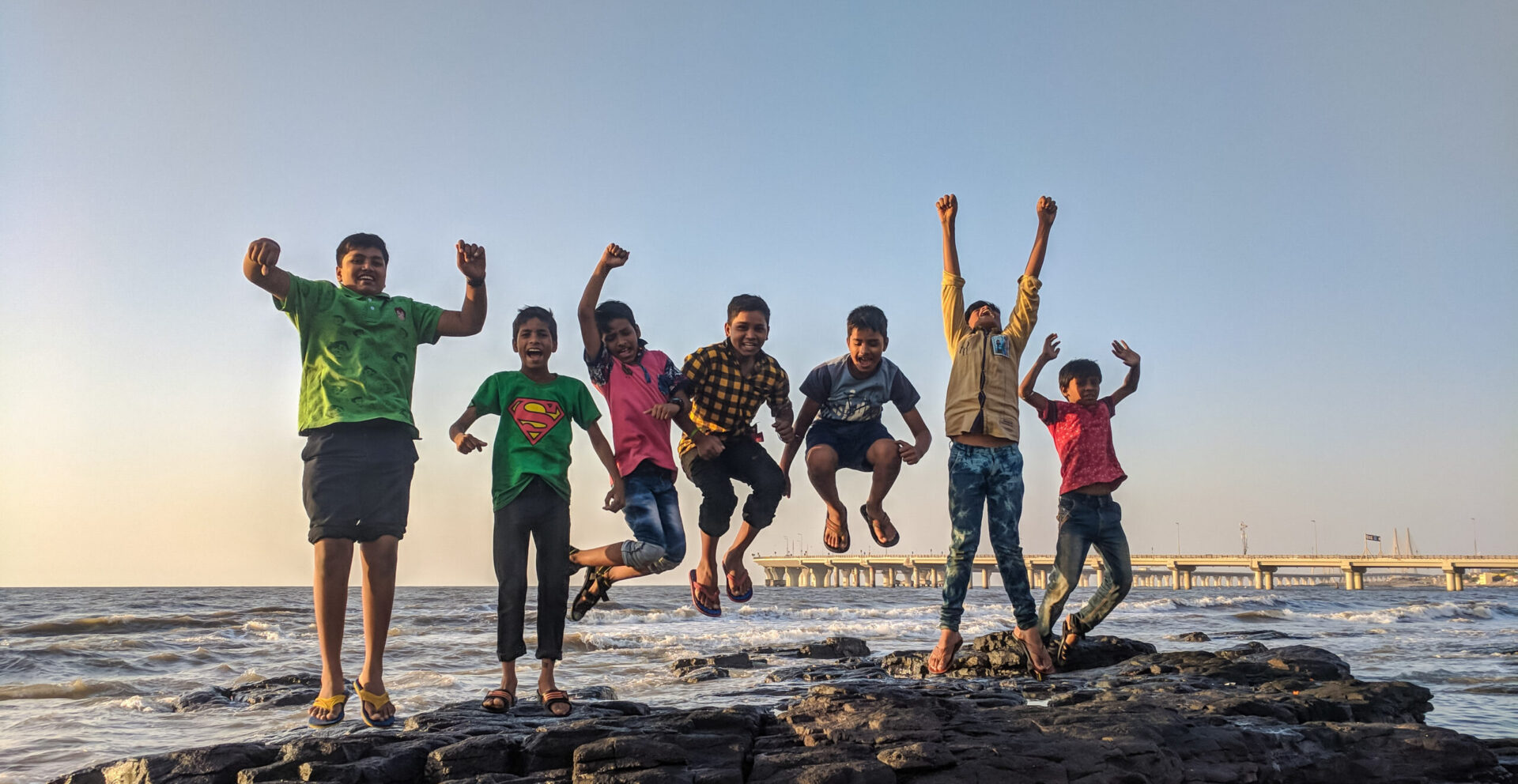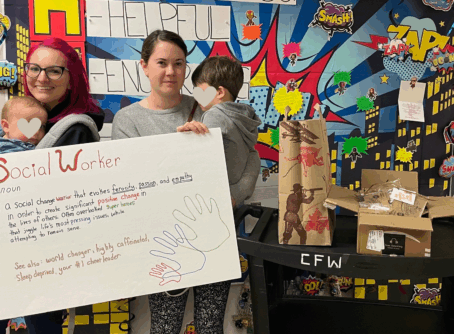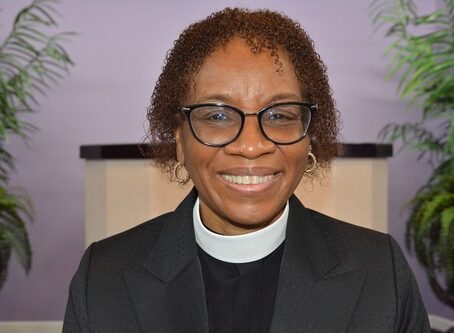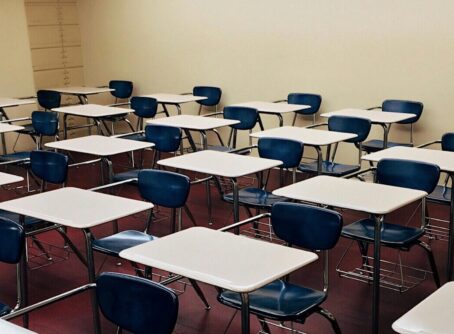
Joya Schreurs: Hello! We’re so excited to hear about everything that’s happening with the DOVE (Diversion, Occupation, Vocation, Education) program. To begin, could you give us an overview of what DOVE is and how it serves at-risk youth?
Kolbe Cole: We want to divert at-risk behaviors, because we recognize that any behavior could be good or bad. We want to catch any kind of truancy or delinquency, like small crimes or infractions and turn those in a positive direction, like entrepreneurship, engineering, or farming. We have a lot of amazing youth in our county and we have a lot of resources, but there’s a disconnect between resources and people. We have been working in the community with families impacted by incarceration for about 30 years now. We have always wanted to ignite hope in various ways and we were always doing that subconsciously, but not really putting a name to it. We’re a Christ centered organization, so we’re always spreading the Word and spreading hope, joy, and peace; the good fruits of Jesus. So it was very natural to us, but we never made it an explicit model. It was just the culture. When I came along, they were filling the niche of community youth programming. I came during the summer camps and after school program and worked with the kids there and other systems in the community. There was also a virtual visitation mentorship program where youth are coming from. They come from different areas, and we don’t have any youth facilities in our county. That’s a negative. So all of our kids that get placed in placements like RTF or a detention center have to go outside of the county, sometimes outside of the state, and that’s a problem for the reunification of the family.
DOVE gets funding through our county CS and juvenile justice system, and we’re also affiliated with our state PACTT alliance. So it’s Pennsylvania Academic Career Technical and Training Alliance and we have a curriculum from them and also partner with our school districts. There are 14 school districts in Beaver County. There is a lot of disconnect within that because every school district has a school board, and they all have their own administration and their ideals, and programming. We also partner with our county government agencies, so we get referrals from them and then we fill the niche of what that student or participant has or needs to be diverted. We see a lot of them come in with truancy issues and they are maybe even behind a grade, but they could also be behind a couple of credits, or they could have not gone to school in six months. Since COVID, a lot of the school districts are turning to online programming instead of sending them to a physical building. They’re actually keeping the kids in at-risk environments because sometimes the schoolhouse is a safe place.
DOVE has filled that niche by creating a place for students to come to do their online work. We also put in a therapeutic component because we have a lot of awareness and acceptance of mental health. But we don’t have a lot of treatment options or access to it. So we wanted to put a therapeutic component in it that would not take the place of mental health therapy, but fill that void until the resources were available, since there’s only 3 psychiatrists in Beaver County, and all these kids need to be assessed. God always provides, and we were introduced to some occupational therapists who were doctorate professors at Duquesne University, and they worked with us in our own occupational needs as an organization, and showed us how we could work with our at-risk youth population through that practice. Another niche was the workforce. We have options in Beaver County for the workforce, but not many people are applying for those since there’s little interest in those jobs from the at risk communities. That’s how we got connected with the packs. They have a workforce development curriculum, so we work with participants in their workforce development aspects along with the occupational therapy. DOVE is a community approach to clinical treatment. We take our most at-risk children or youth in our county and we try to divert their behaviors using the hope theory and we use occupational therapy, which is developing into some mental health therapy, since we have some licensed LPC’s that are interested in the program that have come along to help.
JS: Thank you for that overview. Also, for readers who are new to DOVE, can you explain the acronym and how it serves as a model for the program?
Cole: It stands for Diversion, Occupation, Vocation, and Education. That’s what we focus on for each participant.
JS: Part of that preventive model, as you’ve said in an article with the Beaver County Times, is helping at-risk youth “see how they can succeed.” How does DOVE help youth develop a more hopeful vision for their future, and what difference does this make in terms of their personal and communal lives, both now and in the future?
Cole: That’s a very exciting question. We want to empower their own agency, develop their own passion and skill, recognizing that each person’s passion is there for a reason. We’re all a part of the body of Christ, but nobody is the same body part and we all have to be different for the body to work. Each part has its own purpose. If the arm acts like the eye, the body doesn’t function right. We engage with each participant’s agency and abilities to really figure out who they are, what they can do, what possibilities are open, and what resources that they can use. This is how we try to build their being so they can be successful in whatever area they’re supposed to be in. This also applies to making our community successful because it takes everyone, yet not everyone can be the same thing and fit the same mold. We can’t say that everyone should go to the army, since then we’ll have all soldiers and who are they protecting? Through our occupational therapies through our facilitators, we also teach different workforce and career exploration, and also provide various assessments and tests on even how the body functions. We focus a lot on sensory recognition, recognizing that PTSD comes in various forms, and a lot of the symptoms of PTSD are sensory. We teach our participants and ourselves how to ground ourselves and really understand your emotions, how your body reacts, and how you react to different things, what your triggers are. These tools are used to regulate themselves in their own agency so that they are successful in their jobs and maintain them. Holistically, looking at that person as the individual and what they can and want to do is really important to the program.
JS: What other community services or organizations have collaborated with DOVE in order to reach the varied needs of the participating youth? What are the benefits of such collaboration, and what can other communities learn from this model?
Cole: We’ve partnered with different aspects of the community at large. I probably won’t be able to name them all. One that really sticks out is the women’s center. We partner with the women on a lot of bullying awareness and safe touches, safe relationships, all of that. Our staff and our campers get training through the women’s center and their education program. We also partner with a nonprofit called Outdoor Immersions, who comes in and takes us out into our various parks. We have beautiful national and state parks. He takes us canoeing, kayaking, and hiking. We go and talk about trees and vegetation and stuff like that. We discuss God’s creation and His promises through nature, which is so prevalent around us. But if we don’t take the time to look at it, we don’t recognize it. We’ve partnered with the various cities that were around to do different programs within the towns, because we’re really big on community, pride, honor, respect, and teaching the kids that there are valuable things within oneself. In Ambridge, we partnered with a local pet store. There’s so many small businesses, but honestly our county system at large is a huge support to us. They see who we are, what we do, and they really support us in that. They’ve supported us from the very beginning and they’ve seen how we’ve grown. We get county level support with funding so that we’re able to build quality programming. I don’t know if it’s like that everywhere else. I just know it’s really easy for us to collaborate and depend on each other and in various aspects in the Community.
We partner with a local startup, the Children’s Museum, which does all of our youth programming now. We partnered with the library systems, with all of our different camps, and after school programs, which are great resources. We have beautiful libraries in our county. At each one of our camps, we’re able to go to their local library, but through that, one of the librarians created a children’s museum. Now, we do programming in a children’s museum. Food is also a huge thing. You got to feed them and our pizza places are so generous. They really help us out with things like coupons. They recognize what we do. They see and, in turn, they’re seen too. And that’s the most important thing. Even our adult participants who are coming out from incarceration, know that they’re being seen through us too. That’s also important for the community to grow and develop.
JS: What influence have you seen this program have on the community of Beaver County, and are there adaptations you hope to make to dove as the program continues?
Cole: I think hope is what we’ve been trying to do from the beginning. There’s that energy now even with the caseworkers and the probation officers. They get excited about what they’re doing. It’s hard on us too. Us adults try to work with the system and sometimes we don’t feel like we have any power, but we want to do good and sometimes get burnt out. Not everybody is bad in life. Maybe I can use this as a resource. Maybe this is going to be like something that’s going to break through because everybody’s trying to break through in some way and in some aspects we’re just all crisscrossing. So hopefully this gets everybody centered and then the resources can get out the way they’re supposed to, but I think the biggest thing is the energy it’s bringing. It’s bringing that good feeling that makes you want to get up and try again.
JS: What can Christian organizations uniquely contribute to youth diversion programs or reentry services? How can our faith in action contribute to the flourishing of those who have come into contact with the justice system, whether or not they’re believers?
Cole: It’s all about love. God is love, bottom line. So whether we agree with what’s going on with their ideals or or what they’re thinking because we get government programming, they’re a big supporter of ours, and you can’t discriminate against religion. We just show our love, Christ’s love, for one another. That can be translated into anything: laws, rules, expectations, your personal beliefs. Put love into your work and then if you want to do that in your personal life, do that. As far as our ministry, it is about love and acceptance and letting God work through that. He changes the soul, not us. I can’t change. I’m gonna love you through whatever the Holy Spirit is doing in you. And I think that we’re learning that all of us in our, in our ministries, in our own ways, and through our leadership, that God is so good and covers us in that. I think We gotta be humble; it’s a big thing and that all comes with love. Love shows love. It’ll speak for itself.
JS: Thank you. Why is juvenile justice an issue that Christians should engage with? If we’re told to name “Christian political issues,” juvenile justice probably isn’t one that comes to mind–even though we believe we should dignify every life. So, what would you say to Christians who don’t feel a need to be passionate about this issue?
Cole: This is a conversation that makes people feel uneasy, uncertain, and unsure at times. People want to feel safe. Maslow says it, with God, being prayerful, being in the Word and having good intentions, you’re safe. It’s not always about how you feel. It’s about what you’ve seen, what you see, and what you’re called to do. Emotions are deceiving, you know? This is a topic that affects us all. Ignorance is bliss, but also, If you turn a blind eye, you’re going to run into that wall. If we bypass the things that make us feel uneasy, it’s going to make us feel uneasy eventually. I mean, Jesus hung out with people that nobody wanted to hang out with or deal with. Jesus went right in there, and if we’re supposed to be like Jesus, then we gotta be like this. We gotta do difficult things. I’m sure he was uncomfortable in a couple of situations, you know, thinking about him in his flesh. He was there in love. If we’re really supposed to be Christians and be Christlike, then we gotta really emulate that.
JS: That’s very convicting, and thank you for putting that so beautifully. That is actually the end of the questions that I have written, but we’d love to give you an opportunity to add anything you haven’t had a chance to say or anything else important for people to know about DOVE.
Cole: Thank you for this opportunity for us to get this our story and our example out. We really thank you for this opportunity. It’s a blessing to be a blessing. This is not easy work. but it’s absolutely worth everything. It’s worth it all because it’s good work and it’s God’s work and it’s important work and we feel good about it. We feel good about it if you just go out and do the hard stuff, I’m telling you, it’s gonna make you feel good.
Kolbe Cole is the Director of Programming at TRAILS Ministries, where she has served in multiple capacities through the 8 years she has worked for the organization. TRAILS provides a holistic, faith-based approach to assisting those impacted directly or indirectly by the trauma of incarceration. Kolbe is very involved in her county and western PA as a whole, where she serves on the Board of Directors for Neighborhood North Museum of Play, DeeWalk Promise Hands, Black Action Network Coalition (BANC), The Quality Education Council and Mental Health Task Force for the Flourish Beaver County initiative, and the Inclusion Diversity and Awareness Council (IDAC), among others.




